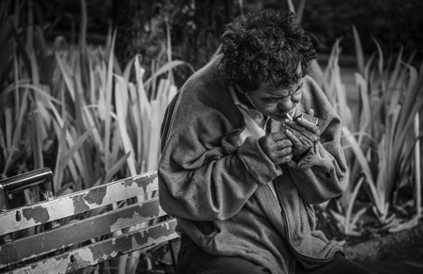I need some guidance. I have an older brother who’s a senior at another major university. Earlier last year, during the fall semester, our parents confronted him about his slipping grades. They pressed him about doing well during his last two semesters; otherwise, an employer might consider withdrawing a job offer. My brother begrudgingly agreed and said that he’d try to improve. He was at home during the holidays when his final grades were released. The news was bad. He failed a class and earned two Cs. Our parents were very disappointed–because he was instructed to pass an alcohol education course by his university. He had apparently gotten into trouble at his on-campus apartment, too. As a result, the resident community manager suggested that he pass the course as a disciplinary measure. Our parents wanted to have an intervention before he returned to school, but it went horribly. He was extremely hostile to everyone. Now our parents are thinking about a professional intervention. I know almost nothing about interventions. What would it involve, and how successful would it be?
Unfortunately, what you’re describing is likely more widespread than you assume. Substance abuse and dependency is a major public health issue across the US. In 2009, experts at the National Institutes of Health (NIH) estimated that 23.5 million persons aged 12 and older needed treatment for an illicit drug or alcohol abuse problem. That’s almost 10% of the national population. Those figures are just the beginning.
There’s also the cost of substance abuse, which is utterly exorbitant. In 2010, researchers further estimated that health care for alcohol abuse was $27 billion. When you account for the widespread costs including damaged property and lawsuits, the total climbed to a whopping $249 billion. The worst part is that no data can accurately reflect the emotional, psychological, and physiological turmoil that addicts and their loved ones are forced to endure. That’s also why a professional interventionist might be a sound strategy.
You should first peruse what author Leah Miller published about interventions and rehab. As she explains, addicts are often either in denial or under the false impression that they have the power to abstain whenever the time is right. That’s rarely the case. In fact, certain highly addictive drugs simply make that an impossibility despite any intentions on behalf of the user (e.g., narcotics, stimulants, etc.).
There’s clearly no shortage of different models for intervention. No intervention guarantees 100% success rate because so much of recovery and rehabilitation relies exclusively on the addict. It’s crucial that your family remembers that fact. You should research what models sound most promising based on what you know about your brother. Once you have a basic grasp of what those models entail, the next step is formally contemplating the interventionist. Colleen Moriarty at Addiction.com encourages you to ask these questions before you commit to hiring an interventionist. Most of her recommendations should be reasonably intuitive. The key takeaway is to perform thorough due diligence before roping someone else into your family dilemma.
Once you had an idea about where to start and who is qualified to help, finding a professional interventionist won’t be too difficult.
“Never be so busy as not to think of others.” — Mother Teresa


